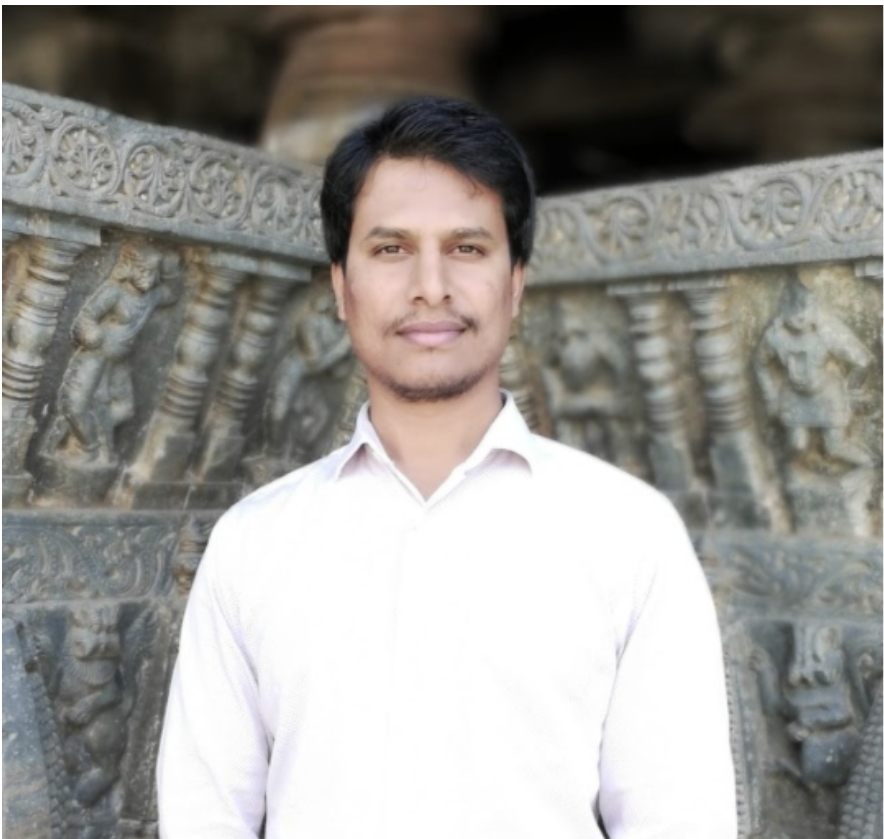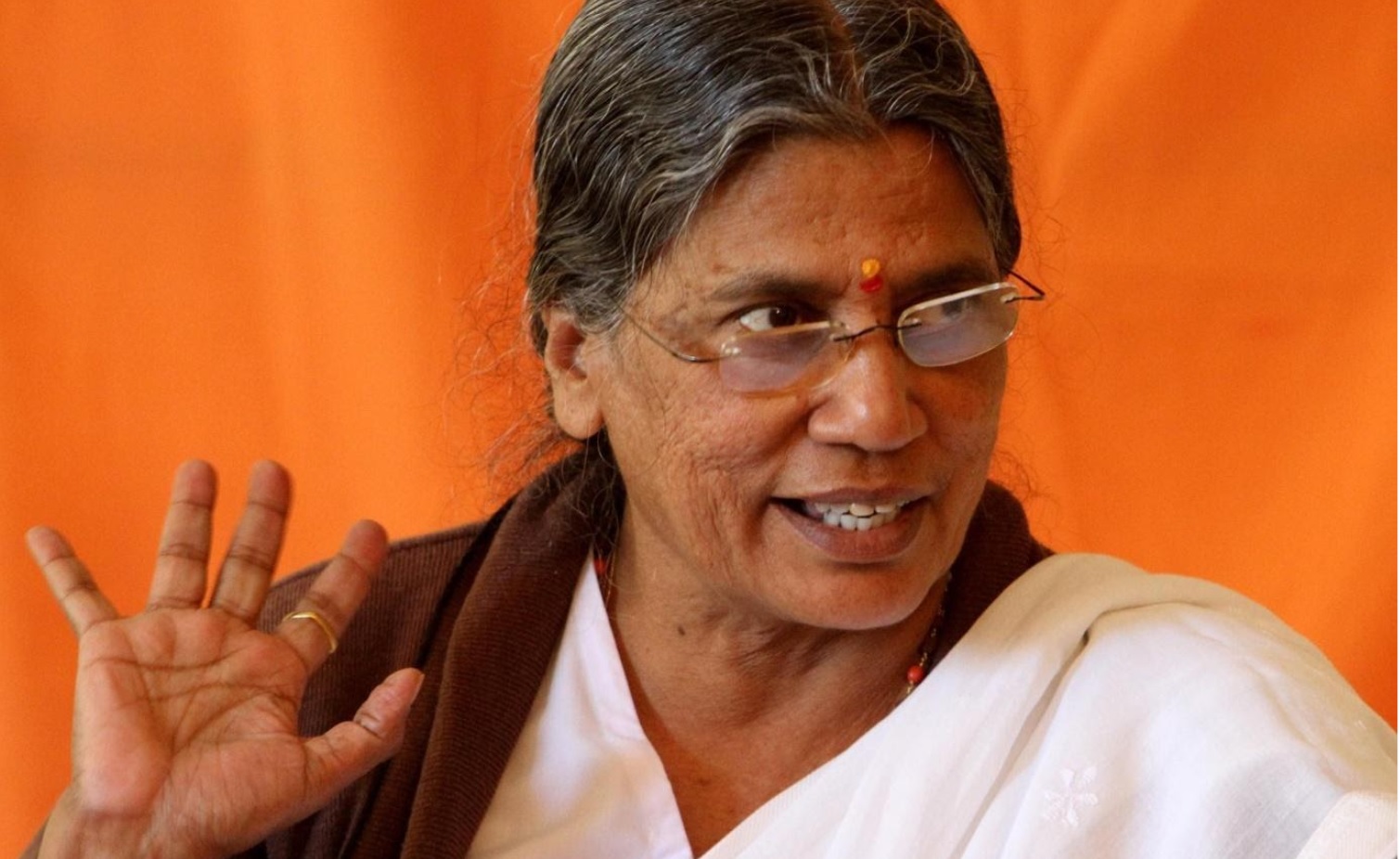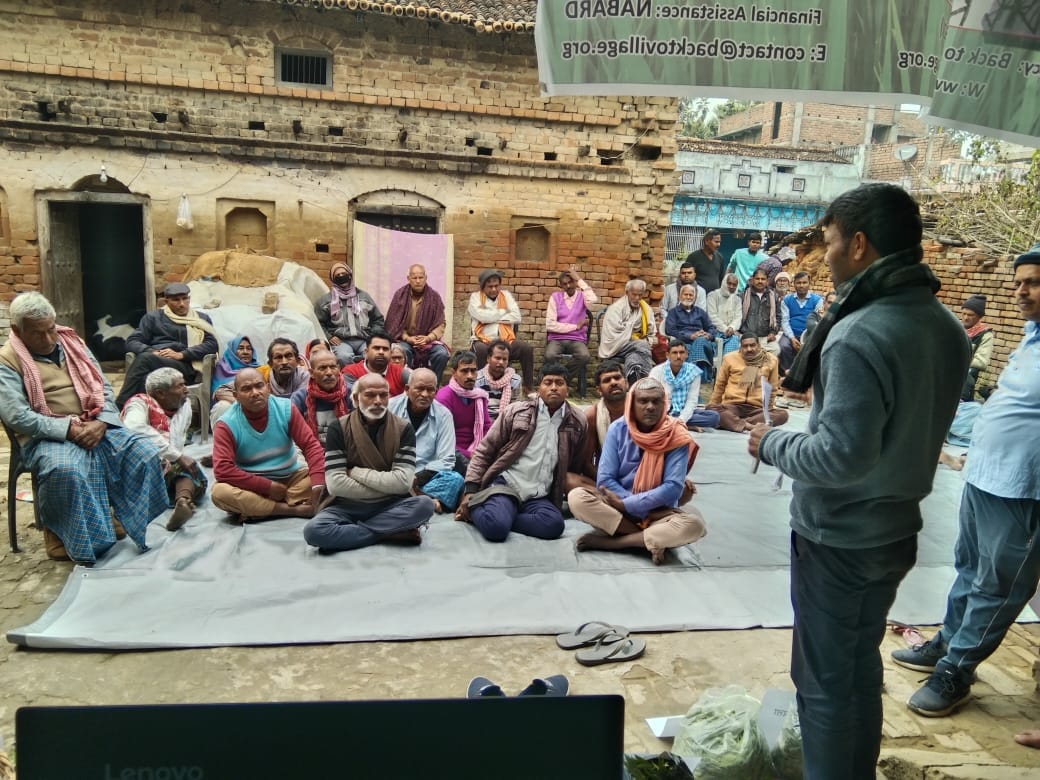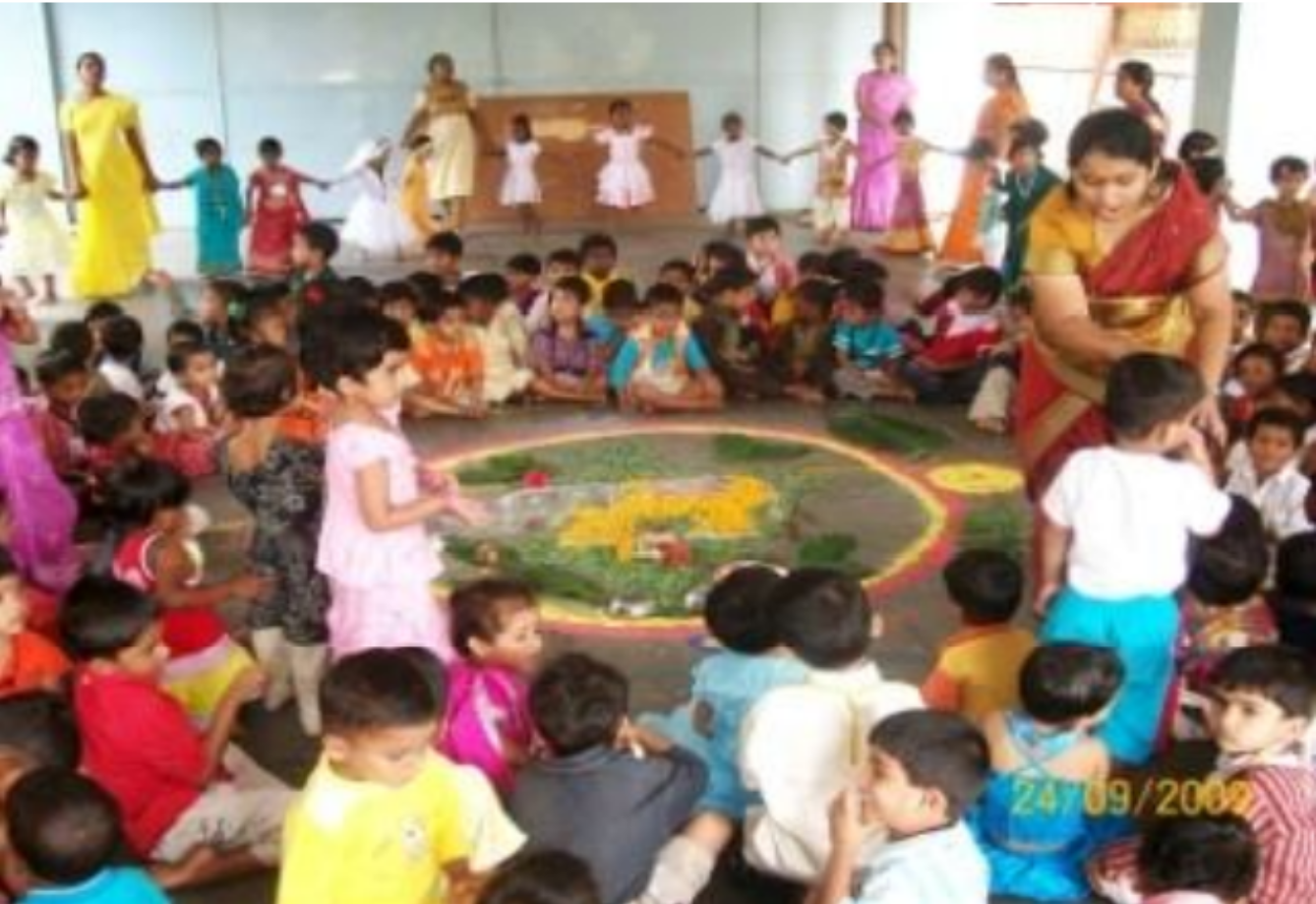Ten years ago, rural students in some remote villages in Karnataka had little chance to pursue studies at the university level or leave their traditional village jobs. Year after year, these students would half-heartedly study feeling unmotivated about getting the opportunity to chase their potential. Those who studied vigorously, in an attempt to secure a different future, would only make up a small percentage of all Indian university students. While a lot more needs to be done to make higher education accessible to these students, there has been an admirable endeavor by some social changemakers to address this gap. Today we talk about one such changemaker, Prashant DS, who has successfully created opportunities for these rural students so that they could grow to their full potential.
We had the opportunity to interview Prashant and get to know him and his work.
Early experiences
Being the first generation in his family to study past grade 10, Prashanth had exceeded the expectations of his family, friends, and teachers. Leaving the rural life in Jagalur Taluk, Karnataka, Prashanth felt lucky to succeed among many urban students as he started university work. During his time in college, Prashanth stumbled upon the opportunity to meet the former President of India, President Abdul Kalam. Prashanth took this opportunity and asked President Kalam why rural youth do not get the same opportunities as those who live in metro cities. Initially, President Kalam disregarded Prashant; however, after seeing his intellect and desire to pry out an answer to this question, President Abdul Kalam answered, “Take an action and jump into that action, that action will work.”
Although cliché, this statement resonated with Prashanth because it was the answer to many problems that he and his brothers faced since childhood. Prashanth told us, he was also inspired by President Kalam’s down-to-earth and accommodating attitude towards all types of people regardless of religion, race, etc. Keeping this statement in mind, he continued his college studies, specializing in software and math. After receiving his Master’s Degree in computer science, Prashanth took an offer for a high paying job in Bangalore and worked there for close to three years. He was living a comfortable life, much better than what his village in Jagalur Taluk could offer.
Prashanth told us, he initially had no intention to return to his village as he was comfortable with his material accomplishments. But soon, despite these professional achievements, Prashanth felt that his life was hollow – it lacked a sense of purpose. So, he and two friends decided to start their first initiative in the realm of social service. They celebrated their alumni reunion by conducting medical camps for the poor. The program was named Chirantana, which means everlasting in the language Kannada. Prashanth and his friends felt proud after starting Chirantana not only because it benefited many rural inhabitants who did not have high-end medical supplies, but they enjoyed celebrating their graduation by supporting the welfare of less fortunate people. This motivation was the key to Prashant’s success, giving him visibility to enacting real change with rural youth soon.
Jumping into action
With the vision of enacting real change, Prashanth quit his job and returned to his village with no means of supporting himself. He visited schools to understand the plight of rural students, what challenges needed exposure, and what improvements he could make. Prashanth initially started making trips to schools and helping out there to take care of his expenses. Eventually, he decided to start a skill development center known as OXUS Academy. He saw that the children were very inquisitive and were eager to try new things and wanted to join the academy; however, parents were overprotective and failed to nurture this curiosity. Some felt like their children should stay back and work in the fields or stay home, and others thought that it was too dangerous for their children to take part in this unforeseen program: they did not trust the process.
Similarly, Prashanth’s parents also had the same problem with him doing something different rather than sticking to his high paying job. They did not support his decision to leave his job and return to the village because it seemed like he was throwing away all his opportunities. However, after it became clear that Prashanth was committed and successful in his endeavor to improve the lives of people from rural communities, his parents slowly became supportive of his work. With this new-found encouragement from his family, Prashanth was able to focus more on his work and grow the academy.
After creating a network of teachers and volunteers, Prashanth worked relentlessly to bring change in the education system and give the students a path for them to create bright futures. He brought computers and technology into the classroom to teach computer skills and programming to help students learn the skills needed in the workforce. Thanks to this program, thousands of students were able to gain access to computer technology for the first time. In addition to educating students about technology, the academy also focuses on English and Mathematics. Additionally, unlike many other schools in the area, Prashanth also shed light on career counseling. Through OXUS Academy, Prashanth implemented a new model of learning called T-E-C-H Shala, where students were taught about human values and given career advice.
Prashanth’s current focus is teaching practical communication skills to students and women empowerment. He wants to work on improving English language skills and establishing a new pattern in teaching his students. Teachers in India teach English as a subject that mainly focuses on just grammar and writing, and not so much on speaking. By adding additional focus to the practical use of the language, Prashanth is able to better prepare his students for jobs and opportunities in the cities since English is more prominent. As for his efforts related to women empowerment, he has already started agro-based industries and garment production units such that women can work and earn money. This enables the women to feel empowered and aims to help families sustain themselves by allowing women to make wages around the year instead of being limited to four months of work due to seasonal constraints in agriculture.
The success of these initiatives caught the eye of the initially skeptical villagers. Though unconventional, they saw that his methods yielded impressive results. On one occasion, thanks to Prashanth’s efforts, he was able to help a father transform from an alcoholic. His daughter Manasa was brought into this newly reformed education program and worked to pursue mathematics and science at the university level. However, given his untamed drinking habits, her father was wreaking havoc at home; sometimes, he would beat his daughter and his wife after late nights of drinking alone. Prashanth and his team helped Manasa excel in math and science and taught her responsibility so that she could free her father from the clutches of alcohol. They also teamed with a pan-Indian organization, Youth for Seva (YFS), to raise money for funding college at a lower cost. Manasa began pursuing her dream of becoming a doctor by studying medicine at a university. At the same time, her father enjoys an alcohol-free life as a shopkeeper making money for the family. Many such occasions have resulted from Prashant’s hardwork and show that opportunities create success, thus changing a destiny.
Many stories of transformation such as this one have resulted from Prashanth’s work, which has allowed him to garner several positive outcomes. Government-run schools saw a staggering jump in enrollment as retired teachers worked with Prashanth to teach the students responsibility and knowledge. Students began to talk and work responsibly at home and to better their community. Moreover, students themselves were teaching their parents how to live and work responsibly and respect society. Parents felt proud and happy that their sons and daughters were learning to become highly successful individuals. Alongside all this, families also began enjoying a substantial increase in financial security due to Prashanth’s women empowerment initiatives. All these relationships between the community workers and students with their families were able to blossom out of the successful initiatives and trust created by Prashant’s hard work.
Prashant’s work had positive effects on the students and the community and also allowed Prashanth and his team to grow their initiatives and create a more robust system. Over the past ten years of his work, Prashant’s team has grown from the initial 15 people to over 300 youth, mentors, and other rising changemakers. The immense growth in his organization has allowed him to spread his initiatives throughout neighboring villages, expanding the number of students who can take opportunities and use them to better their families and community. Prashanth feels immensely proud of the turnout of his reforms because it gave students opportunities and allowed him to feel motivated to “come back the next day and motivate others” to lead their service organization(s) in the future.
Even though there has been such a positive outcome from these initiatives, success never comes easy. Reflecting on his experience with his students, Prashanth noted that “Patience was one of the most important things for me to understand during this process,” said Prashanth as he ventured into this new territory. Initially his ego caused him to miss the point of the initiative that he was starting, moreover, the words of President Abdul Kalam. He expressed that “getting the kids to learn during school was already challenging, but asking them to learn during after school hours was even more difficult.” This experience taught him how to be patient when introducing a novel system. Given this backlash from the students’ parents, Prashanth learned to cope with the many difficulties by teaching children responsibility and civilized ways to act with people. These manners helped immensely as these kids began to show their parents just behavior and civil processes. As a result, Prashanth was able to launch his idea in a successful and sustainable way.
Prashanth has worked to instill confidence in others throughout his entire journey; however, the journey itself became possible because his role models imparted courage in him. Prashanth started this path of being a changemaker with the inspiration of Abdul Kalam’s words, so it was no surprise when he said the former President was his role model. His goal now is to continue Mr. Kalam’s PURA project, which focuses on providing rural areas with urban amenities, a target that Prashanth is undoubtedly familiar with. Along with Abdul Kalam, Prashanth also considers Venkatesh Murthy his mentor. Mr. Murthy is the founder of Youth For Seva, a nation-wide organization that encourages the youth to volunteer by serving the community. Mr. Murthy’s achievements influenced Prashanth, and they both worked together to improve conditions in schools in his village after they met.
Prashanth briefly brought up how he wanted to guide the younger generation and how he works to be a role model himself. Taking inspiration from Abdul Kalam’s words, Prashanth urges upcoming changemakers to “Jump into action. The earlier they start jumping into action, the earlier they will discover themselves.” He asserts that one should accept, persevere, and have patience when trying to make changes. Prashanth believes that an individual finds happiness in making other people’s lives better, not through tangible, worldly things.
Over the past ten years, Prashanth has inspired many students in and around his village to chase their dreams and unleash their potential so that they can create a positive future. He has benefited society by teaching his students to take care of their community through service and responsibility. To further his cause, Prashanth plans to expand his initiatives throughout Bharat by spreading to more villages. He would like to create his first village, Jagalur Taluk, into a model village so that other villages can follow the same path to success. As for his own goals, Prashanth plans to run for politics in his district to take action and lawfully fix the Indian education system. He finds that throughout this journey, he discovered himself because he started early and took steps to fix problems instead of complaining about them. Prashanth hopes that in years to come, he will get to see the youths of the world taking on responsibility, improving their communities, and playing a critical role in making our society smarter, safer, and stronger.
(This article is based on the research and interview conducted by the two Indian-American high-schoolers as part of the Dharma Internship Program 2020. The authors acknowledge the valuable suggestions and help from their mentors and program coordinator)
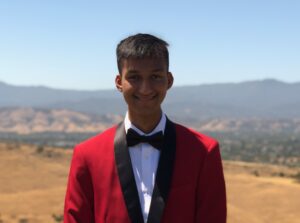
Arul Verma
Arul is a freshman in Purdue University. He likes to play guitar, sports, enjoys the outdoors, and loves to cook


